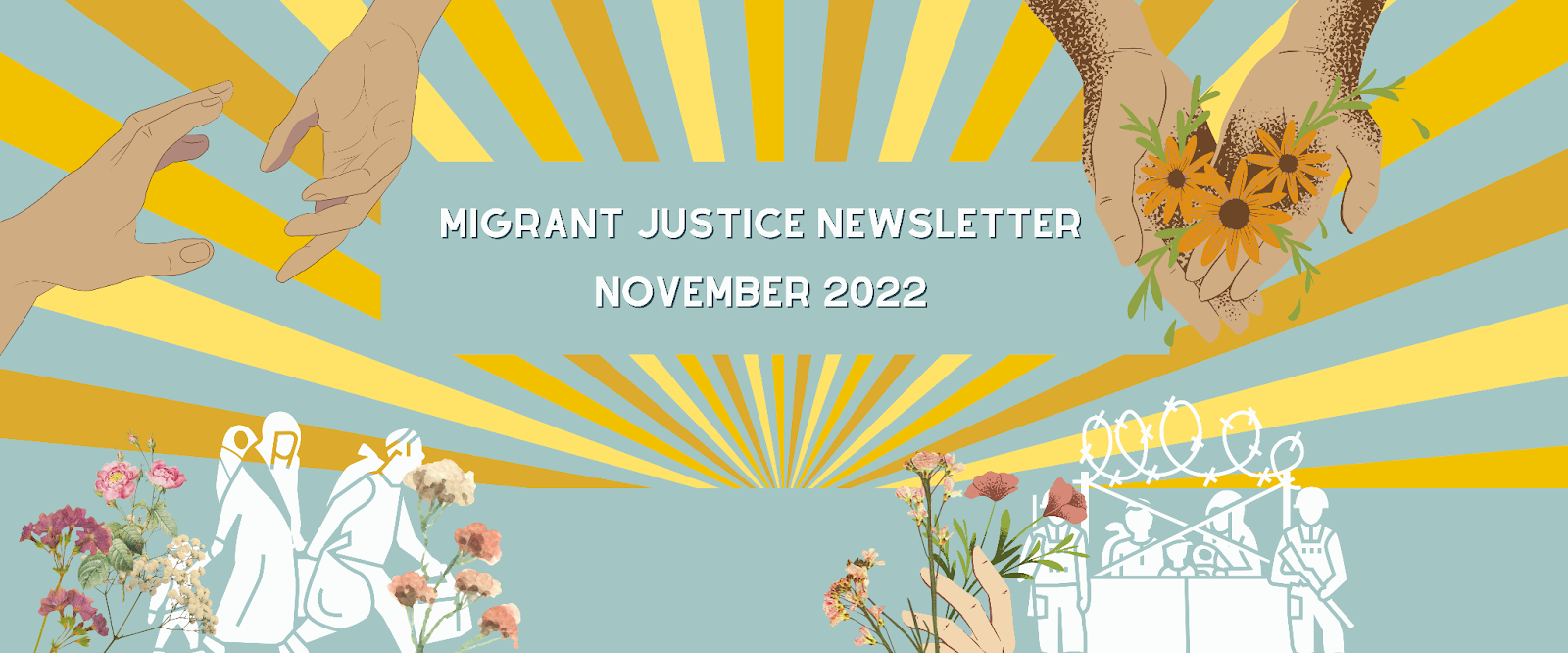In this montly newsletter, please read about : (1) Immigration Court in Cleveland, OH: Nicaraguans rank #1 in deportation proceedings filed; (2) - Recent Border Trends: Why We See so Many Nicaraguans and Venezuelans Arriving at the U.S. Southern Border; (3) Title 42: Expelling Migrants in the Name of Health Measures: Biden Urges Mexico to Take Migrants under COVID Expulsion Order He Promised to End; (4) Immigration and Customs Enforcement (ICE): Increase in ICE’s use of Ankle Monitors and Smartphones to Monitor Immigrants and Detention Numbers; (5) At The Border: Recent Incidents at and around the US-Mexico Border. TAKE ACTION ITEMS: After reading the articles, please take a few moments to advocate for migrant justice with our TAKE ACTION items: (1) Support Ohio Immigrant and Refugee Businesses this Holiday Season; (2) Urge Congress to Support and Pass Permanent Pathways to Citizenship (3) Stop the illegal and immoral transportation of migrants by certain governors to other states and Washington, DC.
- Home
- About Us
- Issues
- Countries
- Rapid Response Network
- Young Adults
- Get Involved
- Calendar
- Donate
- Blog


